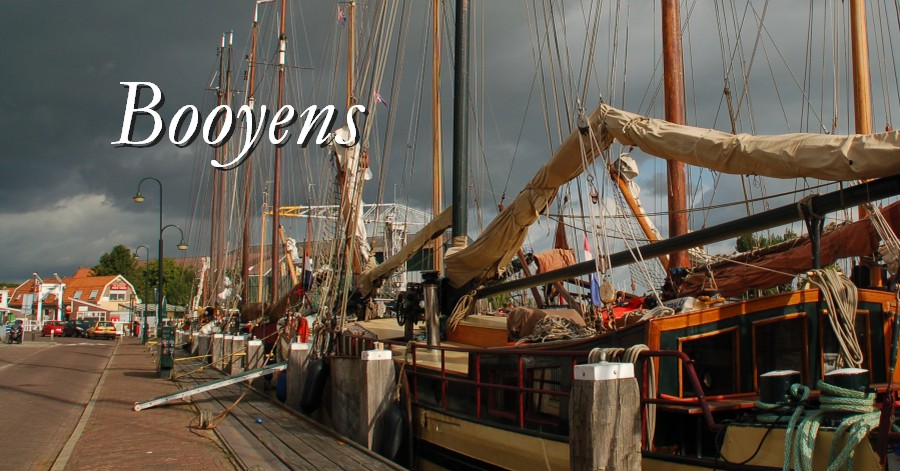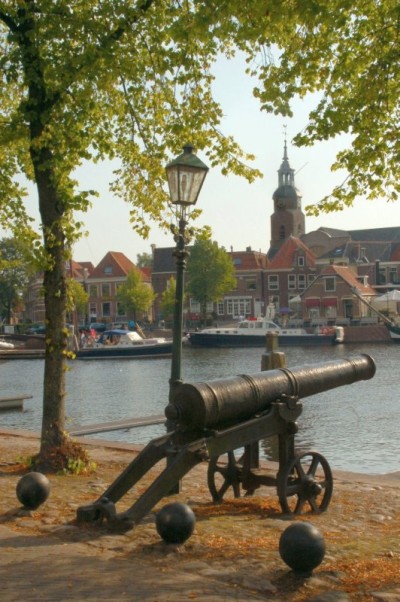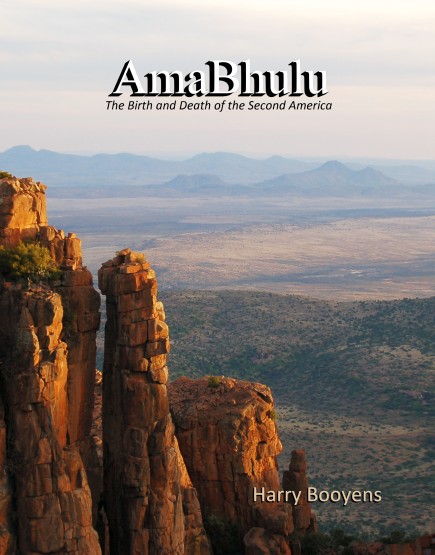The South African Family

The Booyens Genealogy
The genealogy of the family
begins
right here with Joen Pieter Booyens, born in the
second half of the 1600s in what was then Denmark and is now
Schleswig-Holstein in Germany. The work by the author shows
that the progenitor of the family in Africa is Joen Pieter and
not his son Pieter, who followed him to the Cape. Joen Pieter,
however, left the Cape while his son remained.
This genealogy is the work of ten
years of reading half-forgotten texts and digging through
archival materials in South Africa, the Netherlands, and
Denmark. While the genealogy is largely complete up to the
early 20th century, the author is continuing work to add
colour to the characters so that they are not just names in an
archive. Contact from others interested in the subject is
therefore very welcome. However, the approach here is to
create a dedicated website for the Booyens family genealogy
and not a community project where anyone can change data.
There are several such efforts on the Internet and all are
frought with problems. The author is following a simple
principle, namely, only one person enters data, and only after
vetting that data. I am happy to change entries if evidence
and argument is provided.
Particular thanks go to Richard Ball in the United Kingdom for patiently helping with both genealogical information and with my customising of the perl script that automatically generates the genealogy web pages from my genealogy data. Corney Keller in the Netherlands made a huge contribution on the matter of Joen Pieter Boijens and his various journeys as employee of the Dutch East India Company, as well as his life in the Netherlands. A host of individual folks in South Africa helped with church book information, while the Anglo-Boer War Museum, Free State Archives, and Free State Dutch Reformed Church made huge contributions to the effort. I also had help from other good folks in the Netherlands, Germany, and Denmark.
Reading the Genealogy:
The presentation is largely obvious. The subject person is presented at the bottom of a tree showing his parents and paternal grandparents. Wives' parents are not typically provided. Daughters and childless males do not typically have own web pages, but exceptions do occur. References in square brackets may be read right at the bottom of the page. Children of the subject person are shown in trees, and also in a column below along the left of the page. Any child that is given as a blue hyperlink down the left has children of his/her own and therefore has a web page of his/her own; just follow the link. The blue numerical references may be read by hovering the cursor over them. Children given as blue hyperlinks do not exhibit blue reference numbers, because those references are given on the dedicated web pages of those children.
Note:
This is a work in progress. That means, if one does not see blue reference numbers next to data, then I have not yet entered that reference data or I do not yet have it available. I would advise against copying such data, because sources are everything in genealogy. In most cases I do have the source data, but it is not entered into the data system in a way that leads to a Web page showing the sources. It is simply taking so long to do this that I thought it best to share the picture, because some people may just want to contact me to contribute or request data.


17th Century Dutch Home of the Family Booyens
Groot Matewis Schilpadbeen se Mense
AmaBhulu - the Book
The West has finally realized that "bringing Democracy" to the Middle East and Southwest Asia is not necessarily in the best interests of Western Civilization. Radical Islam is hijacking its plans and making a mockery of Democracy itself.
AmaBhulu is a view of South
Africa through eyes different from those employed in fifty years
of media reporting, social science, and politics. The author walks
the reader from the 1652 landing of the Dutch to the present by
following his own family bloodlines as example through the
documented history of the country, supported by copious evidence.
As settlers, soldiers, slaves, and indigenes, they farm, they
fight, they triumph, and they lose. They are mercilessly impaled
and massacred by savage African tyrants. They are hanged and
fusilladed by an imperial overlord, and herded into concentration
camps. Yet, they persevere to create a key Western Christian
country; the envy of all Africa and a Cold War bulwark of the
West. Eventually it falls to the author to describe the loss of
his country through forces beyond his control.
In 1797 the British Royal Navy feared South
Africa would become a "Second America" for Britain, while, in the
20th century, the country was to Africa what the United
States was to the world. AmaBhulu describes the
developing crisis in the Second America that will inevitably
entangle the First America. It is a study in the death of
Civilization by its own collective hand; a severe warning for the
West.
Review by Leon Lemmer on PRAAG in South Africa:
-Translated:
"It is such an exceptionally meritorious work that historical and genealogical societies ought to feel compelled to 'crown' the book and to honour the author with awards."
In fact, some of the research papers on which the early part of the book is based DID indeed receive awards from genealogical societies. This includes the work on Jacob Klauten (Cloete) the first true European settler in South Africa.
Review by Alex Newman in The New American:

■ "An 'eye-opener' of a book...A towering Achievement. "
■ "This is an amazing book...a Masterpiece of commitment & research excellence... simply put, an OUTSTANDING BOOK!"
■ "A fantastic read, well written, well researched... A Spellbinding book."
■ "A wonderful read... the first historical work that I am unable to put down."
■ "...riveting."
■ "...meticulously researched and unabashedly presents the facts weaved into an engaging story line. A must read!"
■ "Fascinating in its storyline. Painstaking in its research. Chilling in its honesty."
■ "...an Intellectual Tour de Force, telling the real story of South Africa..."
■ "This is not a sugar-coated history, and contains hard truths that not everyone will like to see in writing..."
■ "...a passionate, meticulously documented history of South Africa."
■ "A must read for scholars, history buffs and those simply interested in the unvarnished truth."
■ "This is a book that all liberty loving people should read."
■ "More than once, this book wrung my heart, and tears from my eyes."
■
"Wholly worth it. If only millions more would read this labor
of love and sorrow.
■ "... an objective and accurate view of South African history, as well as a realistic view of the future..."
■ "What Americans must learn from South Africa's tragedy"
■ "...it should be read by every American who cares about his or her country. "Cliffwood Fogge
